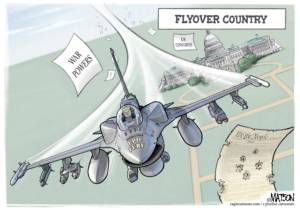Microcredit a macro model of success
Published 12:14 pm Friday, February 13, 2009
Not all the news in January 2009 was grim.
In a counter-balance to the tightening grip of hard economic times, uplifting spirits came about during the historic presidential inauguration, the Martin Luther King Jr. celebrations, neighbors helping neighbors during the Snohomish County floods, and the incredibly heroic landing of Flight 1549 into the Hudson River by Captain Sullenberger. Yet, maybe one of the most impressive, feel-good stories of January was found in “The State of the Microcredit Summit Campaign Report” (www.microcreditsummit.org), which illuminates how 106 million of the world’s poorest families received a micro-loan in 2007. Microcredit loans are used to help people living in extreme poverty start or expand a range of small businesses.
Microcredit is a macro-idea living up to its full potential. Essentially, this business model allows ambitious people who were born into impoverished conditions to secure a small loan of $50 or less to start a business. Their commerce proliferates many products and services, including retail, agricultural goods, construction trades and mobile-phone rentals. Often these loans allow the borrower to escape the debt servitude imposed by the usury loan sharks within their community. Typically, micro-financed loans attain a 95 percent success rate for repayment, which is a lofty attainment even for our local lending institutions.
Since the first Microcredit Summit in 1997, the sheer number of micro-loans has increased to more than 106 million participants — impressive numbers when considering the impact on the world’s 1 billion people subsisting on less than $1.25 per day. Ponder the multiplier effect of entrepreneurs who each, theoretically, support a family of five: their micro-loans are effectively raising the livelihoods of a half-billion people, resulting in more nutritious food on the table, and coverage for education and medical expenses.
Microcredit clearly demonstrates that all walks of life can lift themselves out of dire straits if given the chance. By and large, people wish for a hand up, not a handout. It is high time we stop perceiving poverty as inevitable. Business activities, especially from the bottom up, are imperative to finally relegate the most crass forms of poverty to a history museum, where they belong.
“Making poverty history” is a mantra of Muhammad Yunus. He is the founder of the Grameem Bank in Bangladesh, a U.S.-trained economist, and won the Nobel Peace Prize in 2006 for his lifelong efforts in microcredit. Yunus’ remarkable formula of success runs contrary to that of conventional banks. Micro-loans function best by targeting to the poorest of the poor, favoring women over men, requiring less paperwork instead of more, and making tiny loans over large advances. Thousands of private and public institutions are blazing trails in micro-finance.
One of the largest business-like ventures we know centers around U.S. foreign assistance. Voices are becoming louder to put forth effective reforms in our government’s agencies and ties to global capital such as the World Bank and International Monetary Fund. Not in the sense of propping up a D.C.-based consultant to compose a report to sit on a bookshelf, but rather the crescendo of elected officials influenced by us for establishing real reform based on proven methods. Applications of microcredit are well proven, and should be an essential portion of our foreign assistance.
Many other regions of the world struggle with an ongoing economic crisis. Here in Snohomish County, we are hyper-aware of our local and national financial crises, yet we can still encourage governmental leaders and financiers to act on three key findings of the Microcredit Summit report: 1) Focus on the poorest clients; 2) Set targets to achieve quantifiable outcomes; and 3) Monitor progress to ensure desired results.
Small businesses are responsible for creating most of the jobs in our country, and the same holds true in lesser-developed nations. Micro-finance leads the way. Consider it a growth sector in the global economy, as the organizers of the Microcredit Summit are campaigning for the benchmark of 175 million micro-loans to become a reality by year 2015.
Microcredit is truly a macro-model of success.
William Rugg of Snohomish served in Cameroon as a Peace Corps volunteer, and is a member of the local chapter of RESULTS. For more information about the nonprofit RESULTS organization, contact Rugg at 360-862-9034.


